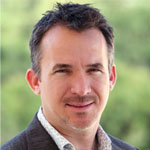Found in translation

Found in translation
- July 21, 2009
- UCI anthropologist travels to Indonesia to launch translation of book on gay identity in country home to world's largest Muslim population
 When Tom Boellstorff, anthropology professor, published his first book, The Gay Archipelago: Sexuality and Nation in Indonesia, nearly four years ago, he did so knowing that many of the gay, lesbian and transgendered
Indonesians who served as the subjects of his study wouldn't get to read his findings.
When Tom Boellstorff, anthropology professor, published his first book, The Gay Archipelago: Sexuality and Nation in Indonesia, nearly four years ago, he did so knowing that many of the gay, lesbian and transgendered
Indonesians who served as the subjects of his study wouldn't get to read his findings.
"Most anthropological books written in English aren't ever translated into the language
of the country they are written about if that language isn't English," he says. At
the end of this month, however, he is traveling to Jakarta, Indonesia's capital, to
help promote the Indonesian translation of his book, a process which has been two
years in the making. The launch is part of the country's eighth Q! Film Festival,
a series which showcases queer, gender, sexuality, fashion, human rights and HIV/AIDS
related media from around the globe.
As the world's fourth most populous country behind China, India and the U.S., Indonesia
boasts more than 17,500 islands, 350 different ethnic groups, and the world's largest
Muslim population. The creation of one common, unified national "Indonesian" identity
has been an on-going struggle for the country. In his book, Boellstorff explores how
the gay identity and community represent an unlikely, but successful example of a
nationalized identity that has been able to transcend the many local Indonesian cultures.
"Gay identity in Indonesia isn't something you typically learn from your local tradition,
so it makes an excellent case study of an identity which is formed at the national
level," he says. His findings on the topic earned him the Ruth Benedict Prize from
the Society of Lesbian and Gay Anthropologists.
"Getting to promote these academic findings in a language that will be understood
by a majority of the people in the country is a really neat thing. I hope that the
translation of this book will help further legitimize the study of sexuality in Indonesia,
and also show that gay, lesbian, and transgendered Indonesians are deserving of equal
rights."
Share on:


connect with us: